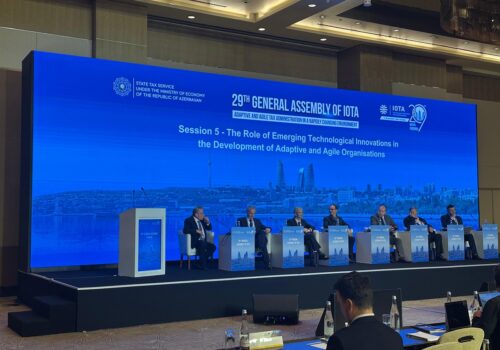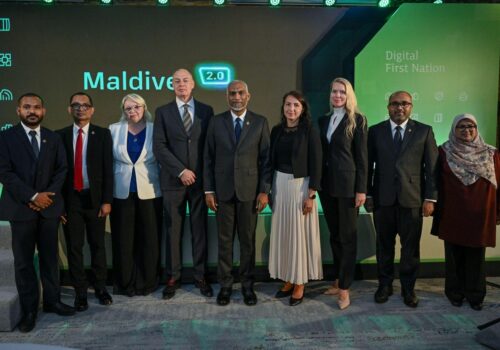On June 10th, 2021, Europe’s largest international conference on digital trust and security services – the European Forum on Electronic Signature and Trust Services (EFPE) – took place. EFPE is dedicated to electronic trust services, including electronic signature and PKI, as well as electronic identification and digital security. For two decades, EFPE has brought together experts and professionals in law, technology and practice in the application of electronic trust services.
This year, the theme of the EFPE was “e-identification and trust services as the future of the digital economy”. The event was held online, with over 700 participating experts from all over the world. Well-known representatives from private companies and public organizations, supporting e-transformation around the world, reflected on how the COVID-19 pandemic has affected the development of paperless services.

The speakers of the EFPE 2021 included representatives from renowned international companies and organizations, such as the European Commission, ISO International Organization for Standardization (USA), ETSI European Telecommunications Standards Institute, Samsung Electronics (Poland), Cosmos Corporation (Japan), Asseco Data Systems, Federal Office for Information Security (BSI) (Germany) and many others.
The founder and CEO of B.EST Solutions, Mrs. Jana Krimpe provided a comprehensive presentation on “Trusted Services connecting countries: e-ID the base for cross-border and e-Trade and digital transformation”. Mrs. Krimpe presented the achievements of Azerbaijan in digital transformation, the provision of trusted services and Mobile ID – “Asan Imza”, the Digital Trade Hub of Azerbaijan (DTH), and cross-border schemas for e-Trade. She shared that the implementation of the innovative “Asan Imza” technology in Azerbaijan has been added to the best practices of numerous reports of international organizations as a tool to ensure accessibility, inclusivity, and the transparency of service delivery to the population. “Asan Imza” service users have access to more than 1000 electronic services provided by the public and private sectors.
She also gave an overview of the DTH – a Public-Private Partnership Consortium between the Center for Analysis of Economic Reforms and Communications, PASHA Bank, B.EST Solutions and AzerTelecom. DTH represents a hub, where the government and private sector jointly create an advantageous business environment for digital nomads, freelancers, and entrepreneurs. Mrs. Krimpe stressed the impact of the DTH project both in the region and around the world. The panelist noted that the further development of DTH will strengthen the recovery of the country during the post-COVID period with the use of digital technologies in the social, economic, and financial sectors. Mrs. Krimpe also emphasized the value of the m-Residency program – the first Mobile Residency program in the world. This enables entrepreneurs to run a location independent company in Azerbaijan and benefit from its major electronic services.
Additionally, Mrs. Krimpe introduced Azerbaijan’s digital initiatives in the panel discussion: “Are the e-Identification and trust services the future of the digital economy?”, moderated by Slawomir Górniak – Senior Cybersecurity Expert, ENISA. The panelists discussed the perspective of cross-border mutual recognition schemas between EU and third countries, new eIDAS, European Digital Identity Wallets, new concept of electronic identification schemes, electronic ledgers for legal certainty, additional security of personal data, certification under the European Cybersecurity Act.
Mrs. Krimpe provided an analysis of the current situation in Azerbaijan with existing trusted services and described different cross-border models for the mutual recognition of e-Signatures. Presented activities related to the Framework Agreement on Facilitation of Cross-border Paperless Trade in Asia and the Pacific under the United Nations Economic and Social Commission for Asia and the Pacific (ESCAP). The Agreement promotes the establishment of cross-border mutual recognition mechanisms for trade-related data and documents in electronic form among members as well as allows members to conclude bilateral and multilateral mutual recognition arrangements for the implementation of the recognition. The detailed information about the conference can be found here.







